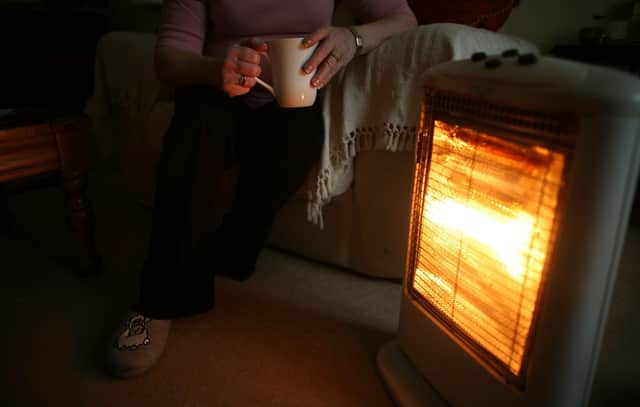UK
Cost-of-living crisis set to get even worse in 2023, think tank warns
Next year looks set to be just as "horrendous" for many families' living standards as this year, as they are hit with falling pay and soaring energy, tax and mortgage bills, a think tank has warned.

Next year looks set to be just as "horrendous" for many families' living standards as this year, as they are hit with falling pay and soaring energy, tax and mortgage bills, a think tank has warned.
Households face a cost-of-living "groundhog year" with disposable incomes plummeting even further than in 2022, which saw the biggest annual fall in a century, according to the Resolution Foundation.
The new year should bring some positive developments, including the end of double-digit inflation, fewer vacancies and recruitment challenges for companies, as well as a rise in benefits and the National Living Wage by around 10% in April.
However, families' living standards will get "far worse" in 2023 before they start improving, the think tank predicts.
This is due to the continued shrinking of pay packets in real terms, with wages remaining well below current levels well into 2024.
Although inflation looks set to have peaked, this does not equal lower prices, just smaller price rises, meaning families still face sky-high costs.
At the same time, household energy spending is set to rise by a record £900 to £2,450 in 2023, up from £1,550 this year.
This is despite wholesale energy prices having dropped, as retail prices continue to climb and Government support will be scaled back.
Advertisement
Hide AdTax hikes will see a typical middle-income household's personal tax bills jump by around £1,000 from April, according to the think tank, which focuses on living standards.
Finally, rising interest rates will translate into some 2 million households moving onto more expensive fixed-rate mortgages, costing the average mortgage-holder £3,000 more a year.
Torsten Bell, Resolution Foundation chief executive, said: "From a cost-of-living perspective, 2022 was a truly horrendous year - far worse than any year in the pandemic or financial crisis.
"2023 should see the back of double-digit inflation, but it looks set to be a groundhog year for many families whose incomes look set to fall by just as much as they did in 2022.
"Many families will be helped by benefits and the National Living Wage rising, both by around 10 per cent next April. But this will be swamped by shrinking pay packets, a record £900 rise in energy bills, tax bills for the typical household rising by £1,000, and millions seeing four digit increases in their mortgage bills.
"For families' living standards, things will get far worse in 2023 before they start to get better."
People are four times as likely to think that their financial situation has worsened than improved over the past year, according to a Resolution Foundation-commissioned YouGov survey of 10,470 adults.
The poll also found that low-income families are three times as likely as high-income families to not feel confident about their financial situation over the next three months.
A Treasury spokesperson said: "We are committed to supporting families with children, which is why we increased both child benefit and child tax credits in line with inflation this year and made changes to Universal Credit so that working families can keep more of what they earn.
"We also have a plan that will help to more than halve inflation next year, bearing down on the financial pressures that households face, and have already lifted millions of people out of paying tax altogether by raising the tax-free allowances for both income tax and National insurance by more than inflation since 2010.
"This is on top of substantial support with the cost of living, with everyone benefiting from energy bills being held down this winter and more than eight million vulnerable households having already received £1,200 in cash payments straight to their bank accounts - with a further £900 for those on means-tested benefits next year."
No comments:
Post a Comment